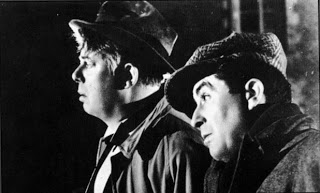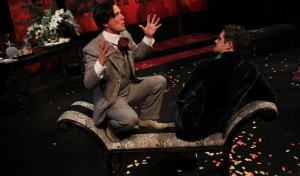I’ve recently noticed some shifts in my own reading tastes that seem to signal nothing so much as that I’m getting older. For me, though, it seems a matter of wanting windows where I used to want mirrors. I’ve read enough novels about people like me having experiences like mine. Now I want to find out about the rest of the world….
Read the whole thing here.



 I miss going on vacations that my father planned. I miss wondering what my mother will cook for dinner. I miss wandering through the smallish public library of the tiny town where I grew up, hoping against hope to find something new and exciting on the shelves. I miss waiting impatiently to hear a good song on the radio for the second time. I even miss living in a place that had no cable TV and only one movie theater with two screens.
I miss going on vacations that my father planned. I miss wondering what my mother will cook for dinner. I miss wandering through the smallish public library of the tiny town where I grew up, hoping against hope to find something new and exciting on the shelves. I miss waiting impatiently to hear a good song on the radio for the second time. I even miss living in a place that had no cable TV and only one movie theater with two screens.
 Apropos of
Apropos of  Written in 1974, “Travesties” is a dizzyingly virtuosic variation on Oscar Wilde’s “The Importance of Being Earnest” in which Mr. Stoppard’s characters, who include Lenin (Eric Parks), James Joyce (Nate Burger) and Tristan Tzara (Matt Schwader), the inventor of Dada, are scrambled together in the senility-crazed memory of Henry Carr (Marcus Truschinski), an aged British diplomat who knew them all in Zurich in 1917. Occasionally sophomoric but more often ingenious beyond belief, “Travesties” is a fact-based fractured fairy tale full of Wilde-worthy epigrams with a modern edge…
Written in 1974, “Travesties” is a dizzyingly virtuosic variation on Oscar Wilde’s “The Importance of Being Earnest” in which Mr. Stoppard’s characters, who include Lenin (Eric Parks), James Joyce (Nate Burger) and Tristan Tzara (Matt Schwader), the inventor of Dada, are scrambled together in the senility-crazed memory of Henry Carr (Marcus Truschinski), an aged British diplomat who knew them all in Zurich in 1917. Occasionally sophomoric but more often ingenious beyond belief, “Travesties” is a fact-based fractured fairy tale full of Wilde-worthy epigrams with a modern edge…